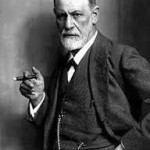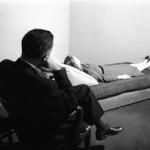Hi all. I’ve taken a little break from blogging. The final send-off of my book manuscript gave me a chance to catch up with email, reading, and some other writing projects. I even sneaked in a novel. It’s called The Humans, by Matt Haig. I picked it up at an airport bookstore on my way to Budapest, where I gave a talk at the International Conference on Behavioral Addictions. Beautiful city, great conference, and a really engaging novel: it’s about an alien who comes to earth on a mission to kill a math professor whose discovery threatens the entire universe. Humans might now acquire the technological capabilities to wreak havoc on a cosmic scale. But against his better judgement, he actually learns to like us, and before long he wants to be one of us. Sweet, funny, and often wise.
Anyway, I’ve thought about where I want to go next in blogging. I want to move on. Through this blog and my writing, I’ve arrived at a place in my own understanding of addiction which I think covers the basics, so to speak: the neural, psychological, and experiential elements that converge in addiction. I’ve shared all this with you: the neuropsychological basis of craving, the cycle of seeking and losing that accelerates learning, the narrowing window of desire and attention and its biological foundation in the dopamine system, the critical importance of self-narrative, of connecting desire with a self-defined future rather than remaining stuck in the present. And all the rest of it.
This leaves me with the sense of having built a good solid foundation for a model that makes addiction comprehensible without shovelling it into a pat category — like disease, or choice for that matter — and filing it away for the experts to dissect.
But there’s a lot farther to go. I want to build more floors onto this model. I want to make it as big, comprehensive, articulate, balanced, and realistic as possible, using the tools I know: psychology, neuroscience, others’ experience, and my own self-honesty.

 I think the next level has to do with the way we talk to ourselves — the running dialogue or monologue through which we organize our thoughts and orchestrate our feelings. The hells and heavens we create for ourselves in imagination and reality. We all know that drugs and other addictive substances and acts can have tremendous appeal, or they can feel like relentless attackers. We sometimes pursue them even while we revile them, and sometimes we shun them even when they call to us in their sweetest voices. Our ruminations, our internal rebellions against real and imagined authorities, our construction of plans, limits, goals, and rules all have a great deal to do with whether, when, and how we pursue these angel-demon entities. Whether we remain addicted or break free.
I think the next level has to do with the way we talk to ourselves — the running dialogue or monologue through which we organize our thoughts and orchestrate our feelings. The hells and heavens we create for ourselves in imagination and reality. We all know that drugs and other addictive substances and acts can have tremendous appeal, or they can feel like relentless attackers. We sometimes pursue them even while we revile them, and sometimes we shun them even when they call to us in their sweetest voices. Our ruminations, our internal rebellions against real and imagined authorities, our construction of plans, limits, goals, and rules all have a great deal to do with whether, when, and how we pursue these angel-demon entities. Whether we remain addicted or break free.
 I think these psychological processes are critically important for understanding addiction in a more detailed, more intimate, and more realistic way. And I think we can access them, bring them into the daylight of examination, and work with them — in ourselves, our loved ones, or our clients — in order to gain mastery over addiction.
I think these psychological processes are critically important for understanding addiction in a more detailed, more intimate, and more realistic way. And I think we can access them, bring them into the daylight of examination, and work with them — in ourselves, our loved ones, or our clients — in order to gain mastery over addiction.
So that’s where I want to go and I want to bring you with me. We learn a lot from each other. We’ve graduated from Kindergarten; now let’s move on.

Leave a Reply